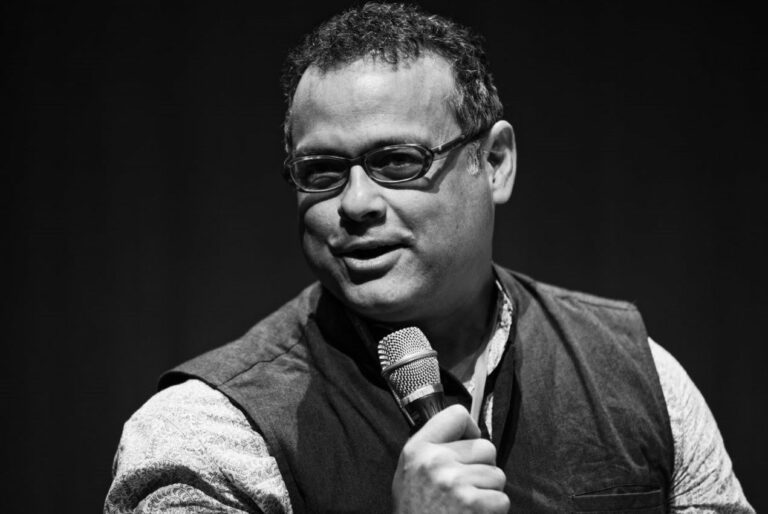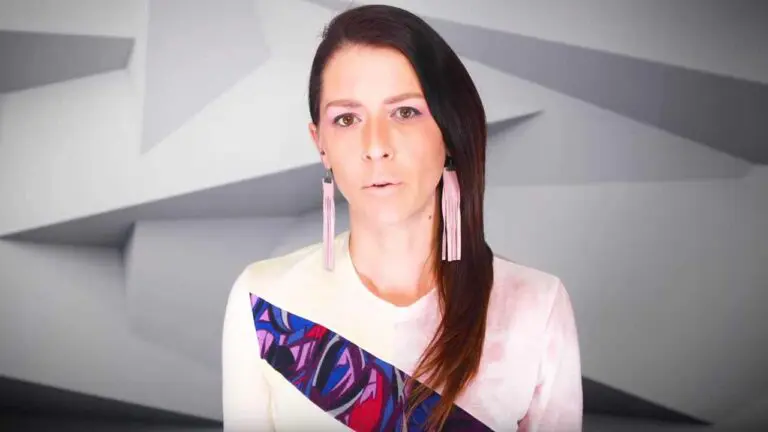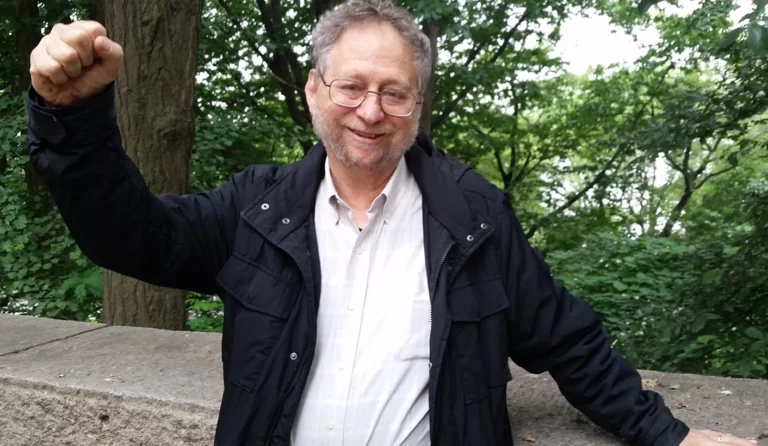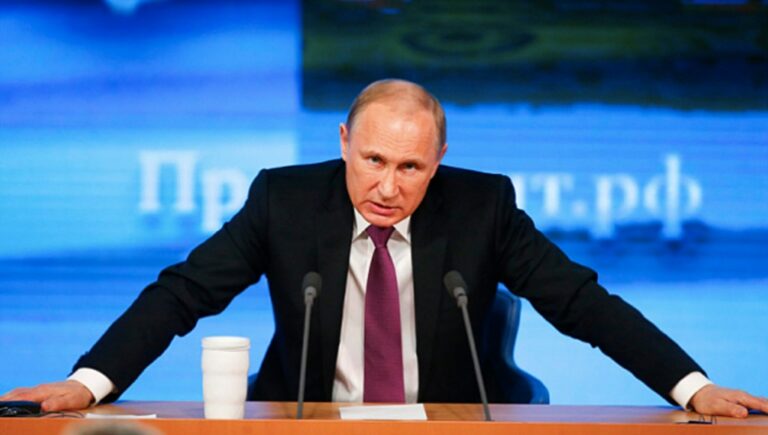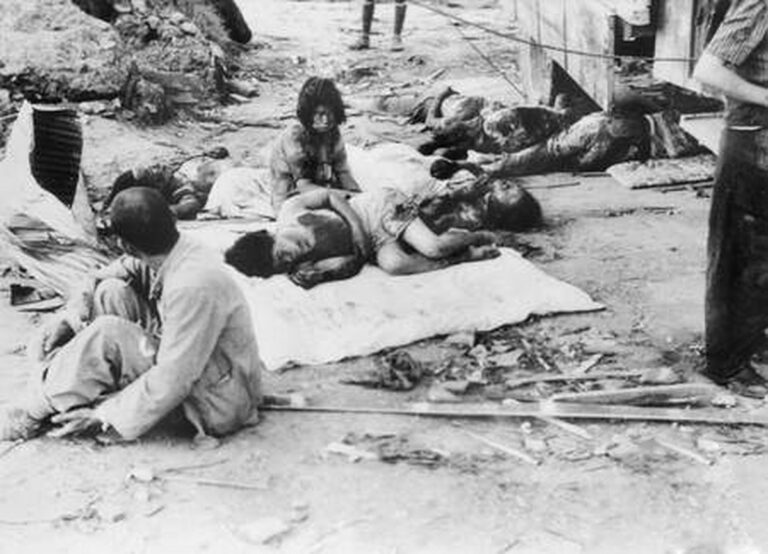Toby Jones, a Prof. at Rutgers University specializing in Middle East history, tells Paul Jay the Saudis are committed to victory in their rivalry with Iran and use money and sectarian ideology to achieve their geo-political interests.
This is an episode of Reality Asserts Itself, produced January 15, 2014.
STORY TRANSCRIPT
PAUL JAY, SENIOR EDITOR, TRNN: Welcome back to The Real News Network. I’m Paul Jay in Baltimore. And this is Reality Asserts Itself. This is part two of an interview with Professor Toby Jones.
We’re talking about the role of Saudi Arabia in the Middle East and on the globe. You really should watch part one. We talk a little bit about Saudi Arabia’s use of terrorist tactics and their interests and strategy in the Middle East.
Now we’re going to move into some of the more current conflicts that are taking place, starting with Syria. But it seems to me that Syria is the tip of an iceberg of what’s to come. There are a lot of forces that seem to want an all-out, quote-unquote, Sunni-Shia war. I say quote-unquote ’cause there’s a lot more at stake here or a lot more driving this than simply religious and ideological issues.
Now joining us to discuss all of this is Toby Jones. He’s an associate professor of history at Rutgers University. He specializes in the Middle East. And he’s the author of Desert Kingdom: How Oil and Water Forged Modern Saudi Arabia.
Thanks for joining us again, Toby.
TOBY JONES, ASST. PROF. HISTORY, RUTGERS UNIVERSITY: Good to be back with you.
JAY: So the gates of Hell have kind of opened up some in Syria. Tens of thousands of people have died, hundreds and hundreds of thousands of people are refugees. The Sunni–quote-unquote (I have to keep doing that), Shia-Sunni war in Iraq seems to be back, heading towards full speed.
And at the heart of much of this are the Saudis. The Saudis are funding all various sides of the opposition. I think they claim not to be funding the directly al-Qaeda linked forces, but I think most observers think they are. And those weapons are, either by intent or not, heading into Iraq and are being used in places like Falluja and Anbar province.
The Saudis seem to think–and this is what most analysts say–that this rivalry with Iran is something that they are going to win, and they’re going to fight it out. And I’ve seen language, as I’ve mentioned in part one, a vile kind of language, depicting: how dare these Persians dare have influence in the Arab world? As we talked about in part one, Iran, and now with Iraq being under Iranian influence, a major oil and natural gas rival and so on, are the Saudis ready, willing? And are they helping fire a Sunni-Shia civil war on a broad basis throughout this region?
JONES: Well, they absolutely are. They’ve committed themselves to a path to victory, as you mentioned, in Syria. They’re not interested in a negotiated settlement. And, you know, the Saudis have money and the ability to move in the weapons. Ideologically, they don’t have a deep playbook. They have to support Islamists, at least the militant networks that we’ve talked about, at least generally. Those are the only networks that are going to willingly work with the Saudis.
And part of the reason is that the Saudis have–you know, they have an interest and they have a set of objectives in Syria which they believe will serve them well, and that’s to at least weaken, stranglehold Assad’s regime, weaken it to the extent that it can no longer effectively represent the interests of Iran; also, to achieve a kind of symbolic victory by taking out one of Iran’s major Arab rivals. Even if they don’t restore it or bring it within the Saudi camp, I think the Saudis would be quite content to have a divided crisis-gripped Syrian country with lots of suffering all around if it means that the Iranians can’t benefit.
So if that’s their political objective and it’s mostly about geopolitics, it’s not as though they can rally hundreds of thousands of–tens of thousands, even, of people from around the region to go and fight, you know, a kind of balance-of-power conflict with the Iranians. So to achieve that, the Saudis then both use money on the one hand, but also they resort to the kind of sectarian ideology, the anti-Shiism that they’ve propagated and supported, even if they haven’t promoted it. If the Saudi regime hasn’t promoted it, they’ve certainly used it when it’s been convenient. And now is one of those moments where we see the Saudis committed fully to using anti-Shiism and to promoting Sunni-Shia conflict as a way to achieve their geopolitical interests.
JAY: Now, what I find a little strange, I guess, is the Saudis seem willing to snub and even part ways with the American agenda. I mean, the American agenda for Egypt seemed pretty clear. It was, you know, using Qatar and the Muslim Brotherhood to try to help manage this new Egypt. And the Saudis helped blow that up in the air. They helped–you know, they told–essentially said to the Egyptian military, don’t worry if you lose American aid. You can dump Morsi, and, you know, we’ll give you $12 billion. Never mind the one and a half or two billion the Americans give you. The Saudis–and then they threaten Putin. I mean, it seems like there’s some kind of self-destructive megalomania going on here.
JONES: Well, look, I mean, you know, the Saudis also gambled that the Americans would come into line with the Egyptian military once it was back in power, and that seems to have been the case. It’s not as though the Americans have been particularly stern or harsh with the Egyptians. Cutting off military aid has been much talked about. I don’t know whether it’s actually been followed through on or not. But the Americans have not exactly come down and condemned or criticized the Egyptian regime.
JAY: Yeah. I would say I don’t think the Americans cared all that much whether it was the Qatari play or the Saudi play. It’s just that the Saudis upset their play. I agree with you. In the final analysis, the Egyptian military is all the Americans really care about.
JONES: Well, look, I mean, there’s a kind of–there’s a general claim out there that the Saudis and the Americans are on a break. And we see, you know, this potential for rapprochement between the Iranians and the Americans around the nuclear issue, as though this signals some kind of major setback for the Saudis.
I think it does. I mean, I think any kind of movement in the–or, you know, sort of break in–improvement in relations between Iran and the U.S. is a problem for the Saudis. And it’s played out most spectacularly in Syria, where the Americans and the Saudis certainly don’t agree about the right course of action, although the Americans also haven’t strenuously objected to what the Saudis have been doing in Syria. So let’s keep that in mind as well.
But beyond this, the Saudis and the Americans maintain very strong ties everywhere. I mean, the U.S. just came out a couple of days ago and said they were going to expand the footprint of the headquarters of the Fifth Fleet in Bahrain. The U.S. has agreed to the transfer of power in Yemen, which essentially leaves, you know, the old Saleh regime in power. You know, the Americans and the Saudis have agreed more than they’ve disagreed in the region, and it’s–of course, it’s with respect to Syria that things are most distinctively different.
But even there, I don’t know that there is a clear line in what the Americans prefer. The American preference in Syria is simply for the Syrians to work this out in some way that one side’s either exhausted or that they can reach a negotiated settlement through attrition. The Saudis want to win in Syria, and there’s the difference. But I think in the end the Americans could actually live with the Saudi terms of victory, that is, a weakened Assad and a Syria whose crisis is mostly domestically contained [crosstalk]
JAY: Right. But the Saudis do not want to live with Iran coming in from the cold. There’s an organization called INEGMA. It’s this military policy think tank. It was started in the Emirates, I believe. They’re financed mostly by American military manufacturers. And they have a weekly newsletter. They do analysis. It’s sort of like a RAND or a Stratfor for the Gulf’s GCC countries. And in a recent piece that they published, they ended it by saying, if the Saudis aren’t allowed to the table with the P5+1, the American-Iranian negotiations–this isn’t the exact quote, but it’s more or less all hell is going to let loose, once again, as we said in part one, virtually threatening the use of the terror networks and all of that. The Saudis really do not want Iran back at full production of oil and gas and such, and they don’t want them back as full players.
JONES: That’s right. And the Saudis are certainly pulling out all the rhetorical stops. You know, they’re brandishing all of their terrifying messages, right, that the region could go to hell, that al-Qaeda and other networks will be even more dangerous in the region.
But the reality is this, and that is that the Saudis are going to kick and stomp until it’s not reasonable or relevant for them to do so anymore.
And I think the Saudis have overplayed themselves with respect to Iran. The Obama administration, for all of its failures in the region and for the absolute total lack of a clear Middle East policy, or even clear Egyptian policy, a clear Syrian policy–and we can go around the region and talk about how poor the White House has done in thinking critically and usefully about how to engage–one place where it has engaged seriously is on the Iran nuclear issue. And the Saudis are stomping and screaming and throwing a fit, but ultimately, because Obama has shown some resolve with this issue, if he’s not undermined by Congress, the Saudis are eventually going to have to go along with it. I mean, so they can talk about all hell breaking loose, but I don’t think the Saudis really have the capacity to unleash forces beyond those which they’ve already unleashed.
JAY: Well, do they not have the capacity to do what, as you say, they’ve already unleashed, which is extend the Syrian Civil War into Iraq, extend, you know, the civil war of Shia-Sunni fight again into Lebanon? I mean, they can help fuel a massive fire in which, you know, tens and thousands and hundreds of thousands of people are likely to die.
JONES: Well, I mean, look, I mean, I think the Saudis are calculating that that won’t happen. The Saudis aren’t–because if this became more cataclysmic, that is to say that if it expanded into a regional problem beyond which it already has–obviously, Lebanon has been brought into the Syrian conflict, and there does seem to be some spillover effect into Iraq. We don’t know the extent to which the Saudis are engaged or responsible for what’s going on in Iraq. I suspect they’re pretty deeply engaged in what’s going on in Lebanon. But the Saudis also know that there’s a limit.
JAY: Well, just to add that, we know they just pledged–what is it?–$3 billion to the Lebanese government in military support, one would think so they can start a fight with Hezbollah.
JONES: Well, or at least so that they can–or at least so that they can work against Hezbollah as a kind of, you know, alternative force. I don’t think–look, I think this is the bottom line. I don’t think the Saudis want to spark a regional civil war. I think what they’d like: for there to be some kind of moderately temperate, very dangerous crisis that continues to roil across the region. But I don’t think the Saudis want to see it become worse than it already is, because that has the potential to spill over in ways that would threaten them. And let’s remember, the Saudis aren’t in a particularly strong position when it comes to defending themselves militarily. So they’ve got to make sure that the crisis is contained elsewhere. And it’s unpredictable how it might go if they poured even more resources into all of this.
JAY: I mean, the prize or main place of contention that really matters right now, I think, would be Iraq, I mean, firstly its strategic positioning and size, how much oil it has, and the strength of the Sunni and al-Qaeda-esque insurgency there. And it’s a way to directly confront Iran through the fight in Iraq. So one can certainly say this not going away. It’s going to get more and more intense in Iraq, is it not?
JONES: Well, I think that it is. I mean, Iraq intensified over the summer. The death toll over the second part of 2013 was terrible. I mean, there wasn’t much reckoning with the awful figures, the number of people killed over the course of a year in the Western media. But Iraq has had a really bad last 12 months. And I certainly agree that it’s poised to get worse.
But remember, Iraq was pretty bad a few years ago, too, tens of thousands of people killed in the course of its civil war and the worst part of the American occupation. But it didn’t become a regional conflict then, either, when it really had the potential to do so. And I think that’s partly because the Saudis judged that it wasn’t reasonable for them to push quite that far. I mean, look, at the end of the day, the Saudis are trying to control forces they probably cannot control. And so, you know, I don’t want to inject or suggest that they have a reasonable grasp of things.
JAY: But this easily can get out of their control. And, of course, there’s other players here. I mean, the Israelis cannot mind a Shia-Sunni fight taking place. Again, I suppose they don’t want to see an all-out conflagration, but as long as the Shia and Sunni are at each other’s throats, you know, they’re not talking about Israel. And even for the United States, you know, maybe it’s not so bad to have these two rivals, you know, Iran and Saudi Arabia, at each other’s throats. I mean, you know, the worst thing I think the Americans could imagine would be is if they actually ever made peace. Imagine what a Saudi-Iranian alliance might look like. I mean, that’s the emergence of another superpower.
JONES: Yeah. Well, that’s not going to happen. Right? I mean, much more likely from the American perspective is that U.S.-Iranian relations would improve. And then there would have to be–you know, there would be fallout on the U.S.-Saudi side of things. And I think the Americans are prepared to think about that–at least they are in the State Department, and probably in the White House. They’re not in the Pentagon, but for all kinds of complicated reasons.
With respect to the Israelis, look, I mean, it benefits lots of folks, including Israel, for Americans to be talking in these terms: which radicals are we most concerned by, the Sunni radicals or the Shia radicals? Because it keeps the Americans engaged very narrowly strategically in the Middle East, as though it has to manage militancy and maintain a certain balance of power amongst the various rival states. Both the Saudis and the Israelis benefit if the Americans see the region through the lens of a sectarian crisis. So, sure, I think they’ll both facilitate or encourage that as a way of both seeing the region from the perspective of the Israelis and pursuing it from the perspective of the Saudis to the extent that it can be contained. But the problem is, as we’ve discussed, there’s no way the Saudis can contain it if they fully commit their resources to it.
JAY: And which means, you know, exponentially more suffering for Syrians, for Iraqis, and Lebanese, and maybe others. I mean, we’re looking at–you know, and it’s not World War I here, but it’s, you know, starting to look like some of the European wars that would go on for decades and decades. And the, you know, ordinary civilians are going to pay such a high price. And what policy should, if there was a policy in the United States that actually had the interests of the peoples of the Middle East as its objective and not the interests of the fossil fuel industry and American geopolitical chessboard playing, what would that policy look like? What should the Americans do?
JONES: Well, look, I mean, I think the U.S. needs to withdraw militarily from the Middle East. I’ve made this argument over the course of several years. I think that the projection of American power comes at great environmental and human cost. I think we prop up regimes that are bad for the region, including the Saudis, the Bahrainis, now the Egyptian military, and others. I think this antagonistic relationship with Iran has been counterproductive on so many levels, from the perspective of the energy, but also from human rights and from suffering in the region, almost constant war.
I mean, look, I mean, I’m a lefty academic, and I’ll be very transparent about all of that. But I think an American approach or engagement with the Middle East that was or that reflected a certain humanitarian interest, that said that human rights were in fact important and that this part of the world isn’t necessarily the kind of strategic centerpiece that it has been for so long–. And I think we can make that case in a world in which the energy dynamic is changing and in which, you know, global environmental change requires us to think about alternative energy anyway, that, you know, the U.S. can significantly restructure its place in the world that might have a kind of short-term chaotic effect, that things could be as bad as they are now, possibly be even worse, but that over the longer term would stabilize, because none of these places, without the kind of political cover that the Americans provide for them, are capable or will likely be willing to pursue reckless behavior. I mean, I think that’s what the U.S. does more than anything is that it enables the Saudis and the Bahrainis and the Syrians and others–the Israelis included–to behave in a way that’s actually counter to their own interests.
JAY: I’ll just add, if all hell breaks out more than it already is, to think that isn’t going to blow back to the shores of the United States is an illusion.
Thanks very much for joining us, Toby.
JONES: Yeah. Good to be with you. Thank you.
JAY: And thank you for joining us on Reality Asserts Itself on The Real News Network.


